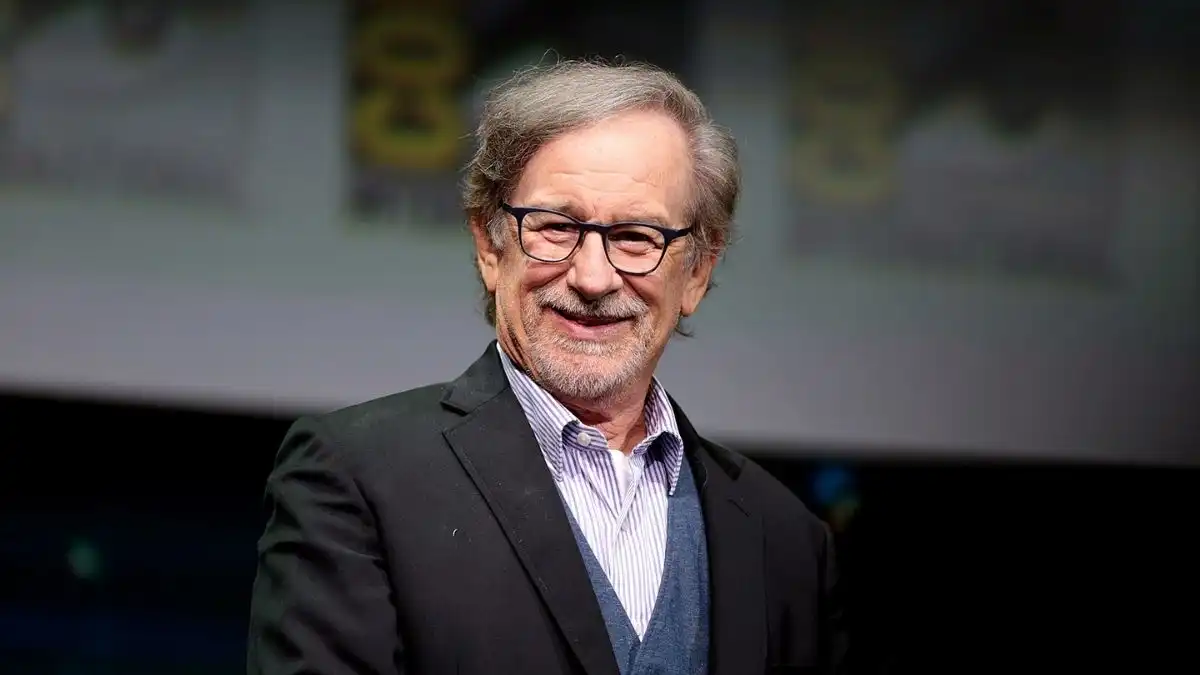Steven Spielberg: The ingenious auteur who has excelled in multiple genres for nearly half-a-century
Examining some of the lesser-known films of Steven Spielberg as the filmmaker turns 75
Dec 23, 2021

Image Credits | Gage Skidmore
Steven Spielberg is undoubtedly one of the biggest names in global cinema. The filmmaker’s remarkable career has spanned for nearly 50 years after he was entrusted by Universal Studios to work on four films, which included Duel (1971), The Sugarland Express (1974) when he was only in his early 20s. The films were well received by critics and Spielberg was lauded for his style. However, none of these films were blockbusters that made Spielberg a household name, until Jaws came out In 1975. The film redefined the ‘monster film genre’ with the man-eating giant Great White Sharks. Over the course of the decades he has dipped his toes in almost every major genre and has found immeasurable success through films such as Raiders of the Lost Ark (1981), Saving Private Ryan (1998), Schindler's List (1993), and E.T. the Extra-Terrestrial (1982), and Jurassic Park (1993). He has also helmed a few lesser-known projects with the same zeal and standards as some of his more popular films. The following is a list of some of Speiberg’s less talked about titles.
Bridge of Spies (2015)
The historical biographical drama is often overlooked when curating a list of Spielberg’s best films. This is surprising considering the film was a box-office success and was nominated for six Academy Awards including Best Picture. What’s more surprising is the fact that Tom Hanks’s performance wasn’t the standout, it was in fact Mark Rylance’s performance as Soviet spy Rudolf Abel that stole the show. The film based on the trial of Abel in the US after the FBI apprehends Abel is undoubtedly one of Spielberg’s best works.
The Adventures of Tintin: The Secret of the Unicorn (2011)
The world’s most popular reporter, Tintin, received his long-overdue big-budget Hollywood film, through the 3D animated film The Adventures of Tintin: The Secret of the Unicorn. Created by Belgian author Hergé, the character has remained a pop culture icon ever since his first appearance in the pages of comic books. Tintin later found new popularity through the animated series, and finally through Speilberg’s film. The animated feature is a fusion of three popular Tintin stories, The Crab with the Golden Claws The Secret of the Unicorn, and Red Rackham's Treasure. Jamie Bell voiced the titular character while Andy Serkis played Captain Haddock. Daniel Craig took on the role of the conniving villain, Sakharine, and the inseparable duo of Simon Pegg and Nick Frost gave life to the Thomson twins. Speilberg created a spellbinding adaptation with stunning visuals and excellent sound design.
Munich (2005)
The 1972 Summer Olympics in Berlin will forever be remembered as one of the darkest days in sporting history, after 11 Israeli athletes and a German policeman was murdered by the Palestinian militant organization, Black September Organisation. The film revolves around the Israeli intelligence agency Mossad’s covert operation called the ‘Operation Wrath of God’. Based on the book by George Jonas titled, Vengeance, the narrative follows the methodical execution of all those who were involved in the attack. The film was praised for opening a debate on the original massacre and the massacre that followed. It stars Eric Bana in the lead with, Daniel Craig in a supporting role.
Minority Report (2001)
The sci-fi thriller is arguably one of the most under-appreciated Speilberg films ever made. The film stars Tom Cruise in the lead as Chief John Anderton in a futuristic police state where crimes are prevented by using a system that predicts crimes before they are committed. The film is a social commentary on privacy, policing, and the state’s power over an individual’s personal affairs. The film was praised for incorporating a mystery thriller into a tech-noir sci-fi narrative. Speilberg yet again excelled as director in delivering an engrossing film that opened several debates on socio-political issues.
AI: Artificial Intelligence (2001)
The film is a misunderstood masterpiece, and the idea for the story was originally conceived by Stanley Kubrick. The responsibilities to make the film was passed down to Speilberg after Kubrick’s untimely passing. The plot is set in the distant future in which large populations of humans have perished due to rising sea levels and global warming. The remaining population develops human-like robots to fill in for the people that were lost. David, a robot, designed to replace a couple’s terminally ill son, soon finds himself wanting to be a real boy - like the stories he has heard about Pinocchio. But unlike the fairy tales, the film is a tragic tale of existentialism, questions on what makes us human, and complex debates on AI self-awareness.
Empire of the Sun
The film is often associated with being the breakthrough performance of a 13-year old Christian Bale. The film itself is a well-executed production that forces the audience to realise the pain of war through Bale’s character, Jim. Despite underwhelming at the box office it has earned cult status and is widely regarded as Speilberg’s best works. The story is set in Shanghai during World War II as Japan invades China, and it focuses on the “loss of innocence” of Jim as he is separated from his wealthy British parents during the invasion. Bale essays a riveting performance, despite his age, and little did most viewers know that he would go on to become one of the biggest stars in Hollywood.
Steven Spielberg’s latest film West Side Story may have underwhelmed as per the latest box office reports despite positive reviews from the critics, but the veteran filmmaker has shown no signs of slowing down. His upcoming film Fabelmans, a semi-autobiographical film, is slated for a 2022 release window. He is also still rumoured to be involved in the Black Hawks film adaptation of the DC comics characters.
Share